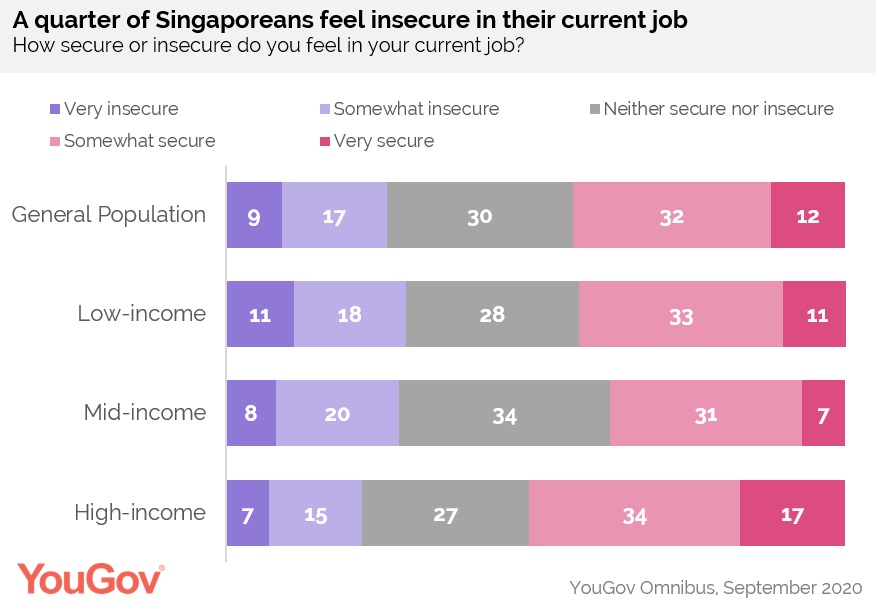Kan Cheong About Job Security? 94% Of Employed Singaporeans Are Too
In the aftermath of COVID-19, unemployment has become a bigger possibility than ever. According to a YouGov survey published last month, 26% of Singaporean employees currently experience job insecurity (aka the fear of losing one's job), which marks a 6% increase compared to the pre-COVID era.
High-income earners (those with a household income of $8000 or more per month) are the most likely to feel secure in their jobs, with 17% of survey respondents indicating they felt "very secure" in their jobs.
Conversely, only 7% of mid-income earners (those with a household income of $4000 to $7999 per month) indicated they felt "very secure" about staying employed.

Will I still have my job tomorrow? Stress sia
Aside from fears about losing one's job, Singaporeans' stress levels over the possibility of unemployment are through the roof. 94% of employed Singaporeans are currently experiencing some level of stress over losing their jobs (kudos to the "not at all stressed" 6% who have achieved the ultimate level of #chill).
Naturally, those who feel "very insecure" in their jobs are experiencing the most stress, with 74% of "very insecure" respondents indicating that they feel very stressed. In contrast, only 17% of those who feel "very secure" about their jobs feel very stressed (Though over what, we can't fathom. Very secure already, still very stressed for what?).
Finding a new job, taking a pay cut
More than two thirds (69%) of Singaporeans believe that if they lose their jobs tomorrow, it will be difficult to find another one with similar pay and benefits. However, 41% believe that they'll be able to find a new job within 6 months should they find themselves unemployed tomorrow, with 21% believing it will take 3 to 6 months and 20% believing they'll be employed again with 3 months.
Almost half (48%) of Singaporean employees say they would be willing to take a pay cut of up to 20% to find a similar job, with 9% willing to take a pay cut of more than 40% and 18% unwilling to take a pay cut at all (Lower your expectations a bit lah bro!). Understandably, low-income earners (those with household income of less than $4000 per month) are far more unwilling to take a pay cut (25%) compared to high-income earners (12%).
If you're currently in the midst of job hunting, check out our story for some tips to make the process smoother and less stressful.
For the latest updates on Wonderwall.sg, be sure to follow us on TikTok, Telegram, Instagram, and Facebook. If you have a story idea for us, email us at [email protected].











